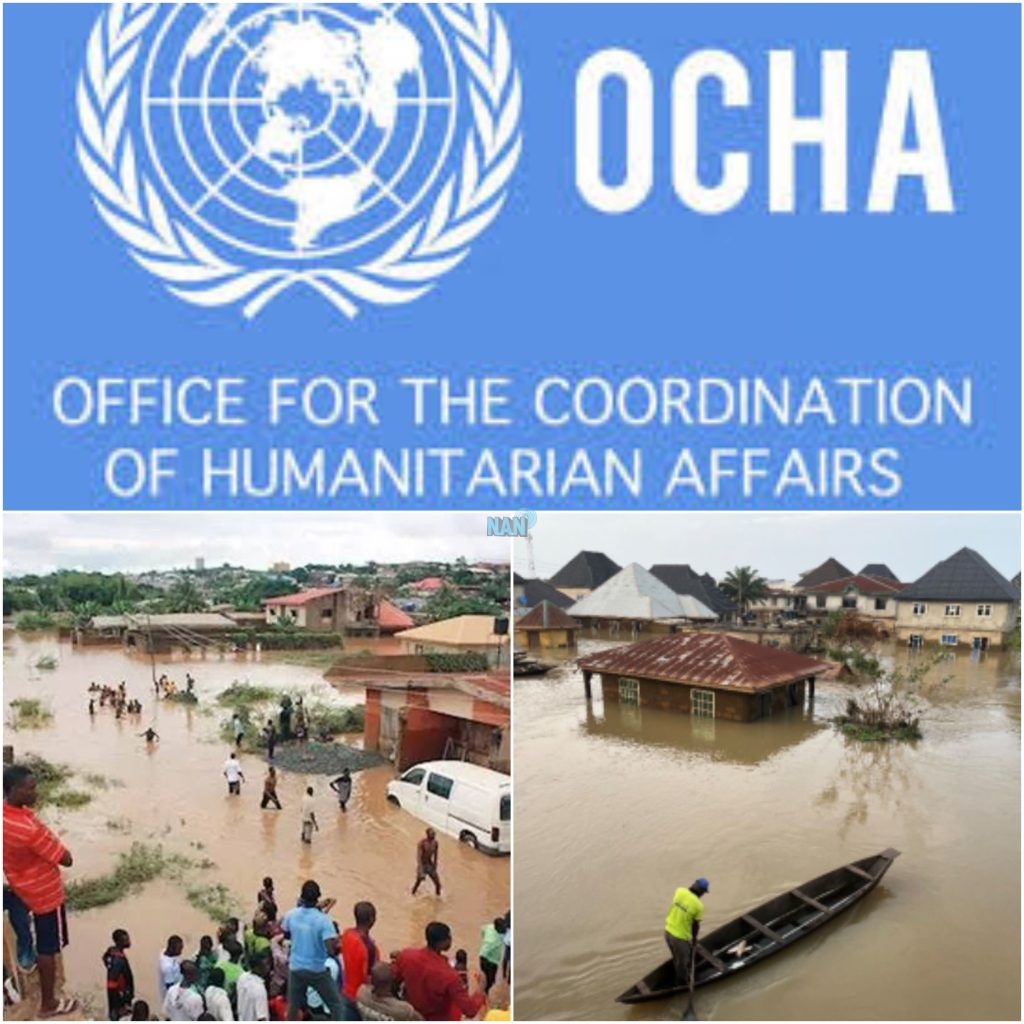The United Nations Office for the Coordination of Humanitarian Affairs (UNOCHA) in Nigeria has restated its commitment to providing humanitarian assistance to victims of flood and other forms of disaster in the country.
The UN Organisation made the commitment when Mr Trond Jensen, Head, UNOCHA, Nigeria, led a team on a visit to the Director-General, National Emergency Management Agency (NEMA) on Monday in Abuja.
Jensen, who decried the devastating situation of flood victims in Nigeria, also commended the agency for its prompt response in providing succour to the affected persons.
He said the organisation would continue to track the contributions of UN member states to the flood situation to ensure that such contributions reached places where they are most needed.
“We are very much hoping that we will be of mutual support to you and that we can work very closely together and particularly this very trying time when Nigeria is devastated by flooding.
“We have been given a mandate by the United Nations to coordinate humanitarian response, either in complex emergencies which are normally in conflicts or alternatively in natural disasters.
“Here in Nigeria, we have mainly focused on the North-East of the country because we were invited by the government to come support the victims of the conflicts in the North-East.
“But what we are looking at is potentially to provide support at the federal level, both in terms of assessment, information management, some co-ordination support potentially as well as with resource mobilization and advocacy,” he said.
On his part, Mr Mustapha Ahmed, Director-General, NEMA, appreciated the team for the visit and for its continued commitment to supporting the country with humanitarian assistance.
Ahmed said that the agency had so far deployed its emergency response assets to various states to conduct life saving first aid and support vulnerable populations that had been affected by this year’s flooding.
He said that although it faced some challenges, it had however, reached more than 1,427,370 displaced persons in 28 states and the FCT, with food, non-food items as well as basic household utensils to support the efforts of their. NAN


